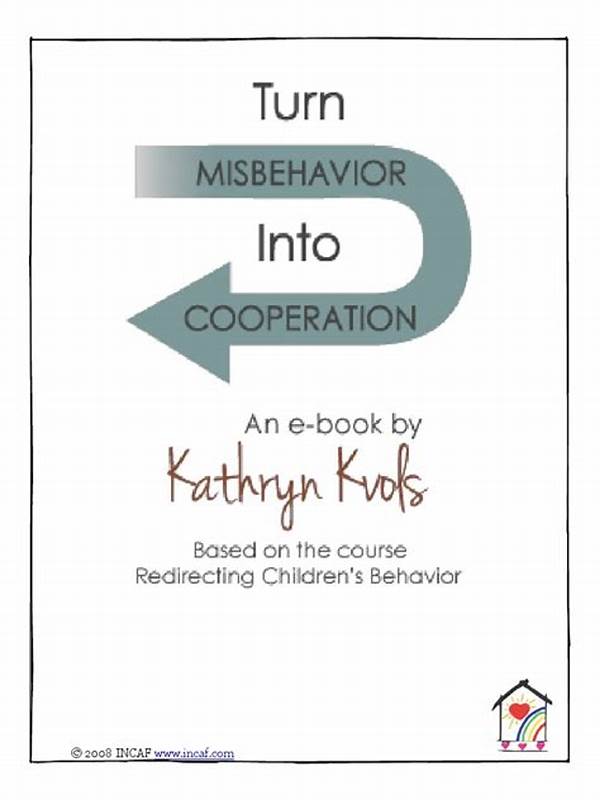Turning Misbehavior into Learning: 9 Gentle Strategies for Tantrums, Defiance, and Lying
Read More : Use Gentle Redirects Instead Of Time-out Or Punishment
There’s a certain kind of magic in turning chaos into calm, especially when it involves our little ones. Misbehavior in children—tantrums, defiance, lying—is a challenge that every parent faces. But, what if we told you there’s a method, a strategy even, that turns these daily battles into growth opportunities? Imagine transforming every meltdown into a moment of learning, every defiant “no” into a discussion, and every fib into an exploration of truth. It’s not only possible but can be gentle and nurturing as well.
In the hustle and bustle of daily life, it’s easy to react with frustration and exasperation. However, turning misbehavior into learning requires patience and a compassionate perspective. Studies have shown that children often misbehave not just out of willfulness, but because they lack the skills to manage their emotions effectively. Understanding this can shift how we perceive and address their behaviors. Imagine having nine gentle strategies at your disposal to tackle tantrums, defiance, and lying. Strategies that allow you to guide your child towards emotional intelligence and maturity. These strategies promise not to just resolve immediate conflicts but to lay the groundwork for a lifetime of healthy emotional management.
For parents at their wit’s end, these methods could be the key. No one ever said parenting was easy, but who said it couldn’t be a little less stormy? Let’s dive into the world of turning misbehavior into learning 9 gentle strategies for tantrums, defiance, and lying, making these strategies an integral part of your parenting toolkit.
—
The Gentle Path: Strategies for Real-Life Scenarios
In our parenting journey, one thing is for sure: unexpected scenarios pop up at every turn. With turning misbehavior into learning 9 gentle strategies for tantrums, defiance, and lying, you will be equipped to handle even the most unpredictable moments. Imagine navigating the stormy seas of toddler tantrums with serenity. It’s not just about quelling the storm but about teaching children how to navigate their emotional tempests themselves.
The first step involves understanding the root cause. Is Johnny throwing a fit because he’s tired, hungry, or overstimulated? Could Sarah’s defiance be a form of self-expression or an unmet need for autonomy? By viewing tantrums and defiance through a lens of empathy and curiosity, you’ll find these moments are not just challenges but invaluable teaching opportunities. Lying, often perceived as a major transgression, is another realm where these gentle strategies shine. Instead of simply punishing dishonesty, foster an environment where truth is safe and valued.
Embrace a communication style that encourages openness and honesty. By doing so, you transform these moments of misbehavior into avenues of deeper connection and understanding – a practice that benefits your child’s emotional development in the long term. Remember, your calm response today teaches them to regulate their emotions tomorrow.
—
Discussion: Delving Deeper into Gentle Strategies
When discussing the topic of turning misbehavior into learning, people often imagine a strict regimen of discipline and correction. However, the essence of these 9 gentle strategies for tantrums, defiance, and lying centers around connection and understanding. How can we pivot from punishment to education in a way that benefits both parent and child?
Parenting is like preparing a gourmet meal without a recipe; it requires instinct, love, patience, and intuition. In practice, turning misbehavior into learning means recognizing each challenge as an opportunity to teach your child invaluable life skills. Instead of viewing an outburst as an obstacle, consider it a chance to foster emotional awareness. Encourage self-expression during moments of defiance, allowing your child to understand their own needs and desires. By redirecting negative behaviors positively, you sow the seeds of emotional intelligence and resilience.
Consider the trial of a young mother facing a public meltdown. Instead of succumbing to frustration, she kneels to her child’s level, validating their feelings before gently guiding them towards a more productive response. This scenario perfectly encapsulates the shift from reaction to proaction that these 9 gentle strategies advocate.
It’s important to acknowledge that this path isn’t always easy. There are days when even the best of us feel like we’ve lost the battle. However, by continually applying these techniques, our children will grow in confidence, gaining a better understanding of how to manage their own emotions.
Investigating the Effectiveness of Gentle Strategies
Further investigation into turning misbehavior into learning 9 gentle strategies for tantrums, defiance, and lying reveals countless success stories from parents who have trodden this path and emerged victorious. These tales serve as both inspiration and instruction for those just beginning the journey.
Parents often express relief and joy upon discovering how effective these gentle techniques can be. One father recounted how acknowledging his daughter’s feelings reduced her instances of defiance significantly. Another mother shared how providing her son with a sense of autonomy during decision-making eliminated nearly all lying from their household.
Research supports these anecdotes with data showcasing the long-term benefits of empathetic parenting. Studies indicate that children raised with compassion and patience develop stronger social skills and emotional regulation abilities.
—
Exploring Optimal Outcomes
Ultimately, these 9 gentle strategies for tantrums, defiance, and lying offer parents a roadmap to fostering a nurturing home environment. Implementing them requires a small shift in perspective but promises a significant transformation in family dynamics. As children learn emotional intelligence through these methods, they gain the ability to manage their responses to the world around them, fostering growth into healthy, compassionate individuals.
